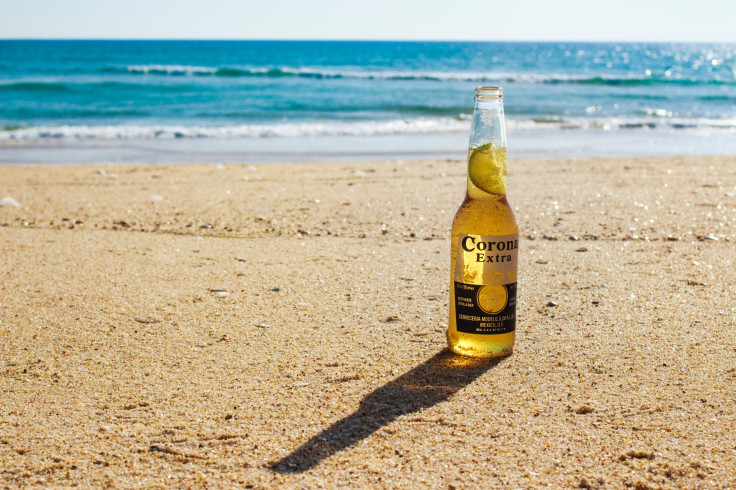Beer Tanning: Expert Warns Viral Trend Could Lead To Cancer

Pour a bottle of beer all over your skin while out in the sun. That's all you need to do to get the perfect sunkissed glow, according to the latest TikTok trend. As beer tanning is gaining popularity on social media, health experts caution people about the skin damage it can bring along.
For some, tanning is addictive, while for others it may be just a fascination to join the latest fad. However, before you jump into trying the new tanning trend, know how it affects health as it can even lead to cancer.
What happens to the skin during tanning?
When skin is exposed to sunlight, the body's natural defense mechanism kicks in, and the production of skin pigment (melanin) increases. However, tanned skin provides a sun protection factor (SPF) much below the recommended levels for sunscreens. So unlike the popular belief, tanning does not protect skin from sunburn but instead causes sun spots, wrinkles and premature aging of the skin.
Exposure to UV rays increases the risk of skin cancers such as melanoma by damaging the DNA in skin cells and weakening the immune system.
According to the FDA guidelines, there is no such thing as safe tanning, as an increase in skin pigmentation is always a sign of skin damage. Studies show indoor tanning can increase the risk of developing squamous cell carcinoma by 58% and basal cell carcinoma by 24%.
According to estimates, one in five Americans will develop skin cancer in their lifetime.
"Ultraviolet light from either the sun or a tanning bed damages our DNA. Special skin cells called melanocytes try to protect our DNA by making a pigmented substance called melanin. Melanin is transported to all of our skin cells to save our DNA. When our skin 'tans,' our body is in survival mode. Our body is trying to save our DNA. When our DNA is damaged, skin cancer may develop. Ultraviolet light exposure that results in tanning also degrades our collagen and elastin, causing wrinkles and signs of premature aging," Kendall Egan, a board-certified dermatologist from Las Vegas, told Medical Daily.
What happens when skin is drenched in beer?
When the skin is drenched in beer, it naturally blocks the functioning of sunscreen, the only proven sun protection that works. Alcohol on the skin can also cause irritations when exposed to sunlight.
"Tanning from UV exposure with or without beer signifies significant ultraviolet exposure and is associated with an increased risk of skin cancer, including one of the deadliest, melanoma. When certain substances are applied to the skin with sun exposure, the skin can respond in an undesirable way with redness, inflammation, oddly shaped drip marks and darkening of the skin. This typically happens when lemons or limes are applied to the skin with sun exposure, but this might also be an issue with citrus beers!" Egan said.
The beer tanning may not even create the tan you desire, Egan said, explaining that the chemical Xanthomuhol present in Hops (a plant used for brewing beer) may inhibit melanocytes from creating the tan.
"[It is] Best to leave beer for responsible drinking and avoid this beer tanning TikTok trend!," she added.
How to protect your skin from sun damage?
Apply sunscreen - The American Academy of Dermatology Association recommends the use of broad-spectrum, water-resistant sunscreen with SPF 30 or higher.
Seek shade and protective clothing - Dress to protect yourself from direct sunlight and seek shade when the sun's rays are strongest.
Avoid tanning beds - WHO classifies tanning beds as carcinogenic to humans. The safest way to tan is by using self-tanning sprays or lotions.



























